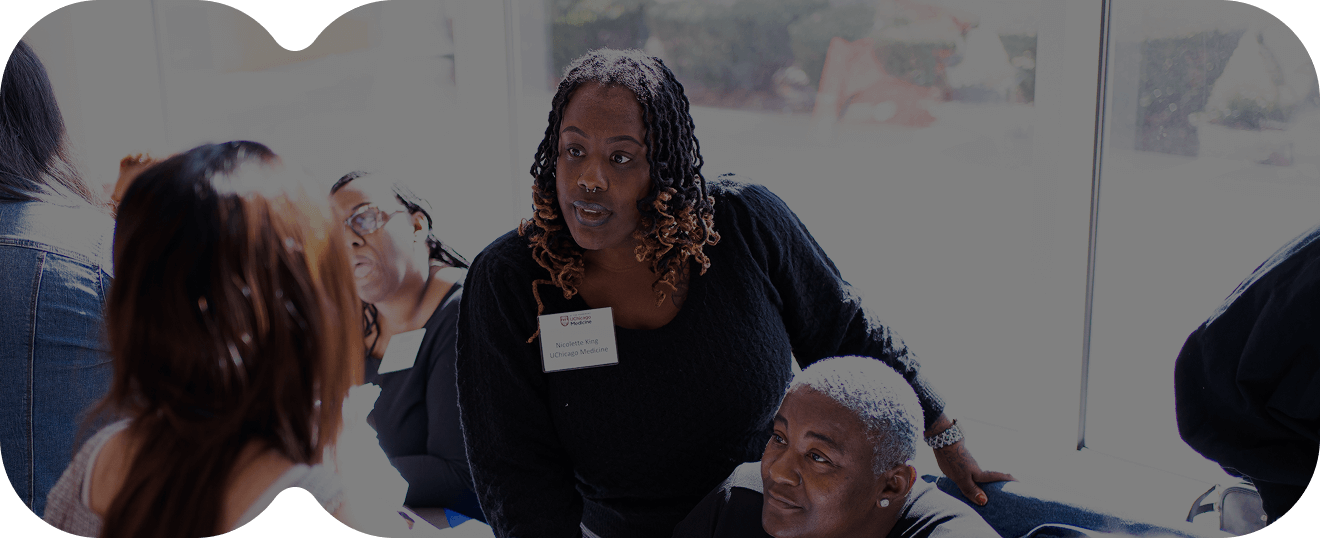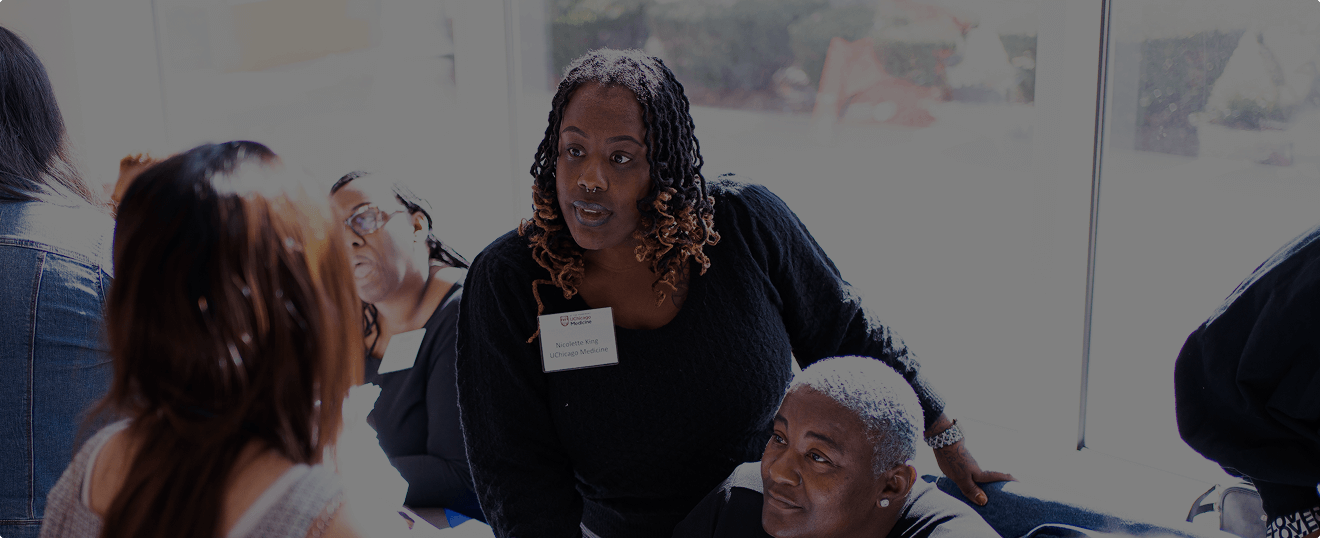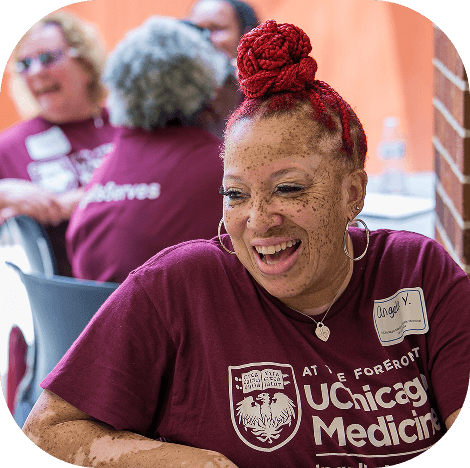Championing Care with Compassion
Born and raised on Chicago's South Side, Nicolette King is a Senior Patient Advocate with a mission: help community members get the care they need, understand the system and feel supported every step of the way. Whether she's in a conversation at a patient's bedside or guiding them through follow-up care, she brings expertise, lived experience and heart to every encounter.


The Medical Home and Specialty Care Connection Program
To help patients connect with community health resources, the University of Chicago Medical Center staffs its emergency department (ED) with Patient Advocates, who work with patients without a primary care provider. Through the Medical Home and Specialty Care Connection Program, Patient Advocates help adult and pediatric patients.
In fiscal 2024, Patient Advocates had 6,653 patient visits, with many receiving multiple encounters. This is an increase of 48.9% over fiscal 2023. Patient Advocates extend their work beyond UChicago Medicine and partner with the South Side Healthy Community Organization (SSHCO) to ensure that there is community-based care coordination.
More Doctors and Resources for Better Community Health
The South Side Healthy Community Organization (SSHCO) is a nonprofit working to close the health equity gap on Chicago's South Side.
Through a partnership of 13 healthcare providers, and with generous state funding, the SSHCO expands access to doctors and specialists, improves care coordination and connects residents to essential resources like food, housing and transportation.
- UChicago Medicine serves as an anchor partner of the collaborative. The health system helped bring $3.5 million in grant funding to the SSHCO, supporting local organizations that connect people to vital resources.
- In 2024, 7 in 10 patients referred by UChicago Medicine's Patient Advocates chose to get services from the SSHCO. Patient Advocates also helped train Community Health Worker teams across the SSHCO network.
SSHCO Impact
Nearly 80 community health workers and nurse care coordinators support patients across clinics, emergency rooms and in the community—helping with navigation, appointment scheduling and access to social resources.
60+
new primary care and specialty providers added across partner sites
Behavioral health telehealth program
addresses psychiatric crises before they reach emergency levels
Early success: reduced symptom severity and fewer ER visits
Over
80,000
patient visits completed, with improved access and wait times
Expanded maternal health services
for high-risk pregnancies and postpartum support
Nearly
10,000
social needs referrals were made for food, housing, transportation and more
- 88 individuals connected to stable housing
- 2,444 medical rides provided through community partnerships
Data period: 2021-2024
Addressing the Root Causes of Health

Social factors shape health outcomes: Up to 80% of a person's health is influenced by nonclinical factors—known as social determinants of health, such as:
- Financial stability
- Job opportunities
- Access to healthcare
- Safe, affordable housing
- Reliable transportation
- Access to nutritious food
Health equity means ensuring everyone has access to the resources they need to live a healthy life—not just within hospitals, but across their communities.
Nearly 20% of residents in the University of Chicago Medical Center’s South Side primary service area face limited access to healthy food. The Feed1st Pantry Program, in partnership with the Greater Chicago Food Depository, helps meet that need by offering free, 24/7 access to food at 11 pantry sites.
In 2024, Feed1st:
- Provided 58,000+ pounds of food
- Served nearly 30,000 people
- Saw a 26% increase in food volume and 21% increase in people served compared to 2023
In 2024, UChicago Medicine partnered with the University of Chicago and City Colleges of Chicago to announce plans to build a new clinical lab facility and allied learning center on East Garfield Boulevard in Washington Park. This investment reflects UChicago Medicine’s commitment to health equity, local workforce development and economic vitality on Chicago’s South Side.
- 550 jobs supported—200 of which would be new entry-level job opportunities
- Up to 800 students will train in the first clinical lab technician program in the city of Chicago
- Partnership designed to strengthen healthcare career pipelines and advance lab capacity for UChicago Medicine’s AbbVie Foundation Cancer Pavilion, opening in 2027
Health Equity

Creating healthcare career pathways
Expanding access to primary care
Learn how new clinics are improving access to essential healthcare services in underserved areas.
Hospital care at home
Discover how we're making care more accessible and flexible for patients with complex needs.
Fewer ER visits, thanks to food access
Find out how food support and community resources are improving children's health outcomes.
Expanding midwifery care
Find out how UChicago Medicine is increasing access to maternal health services.
